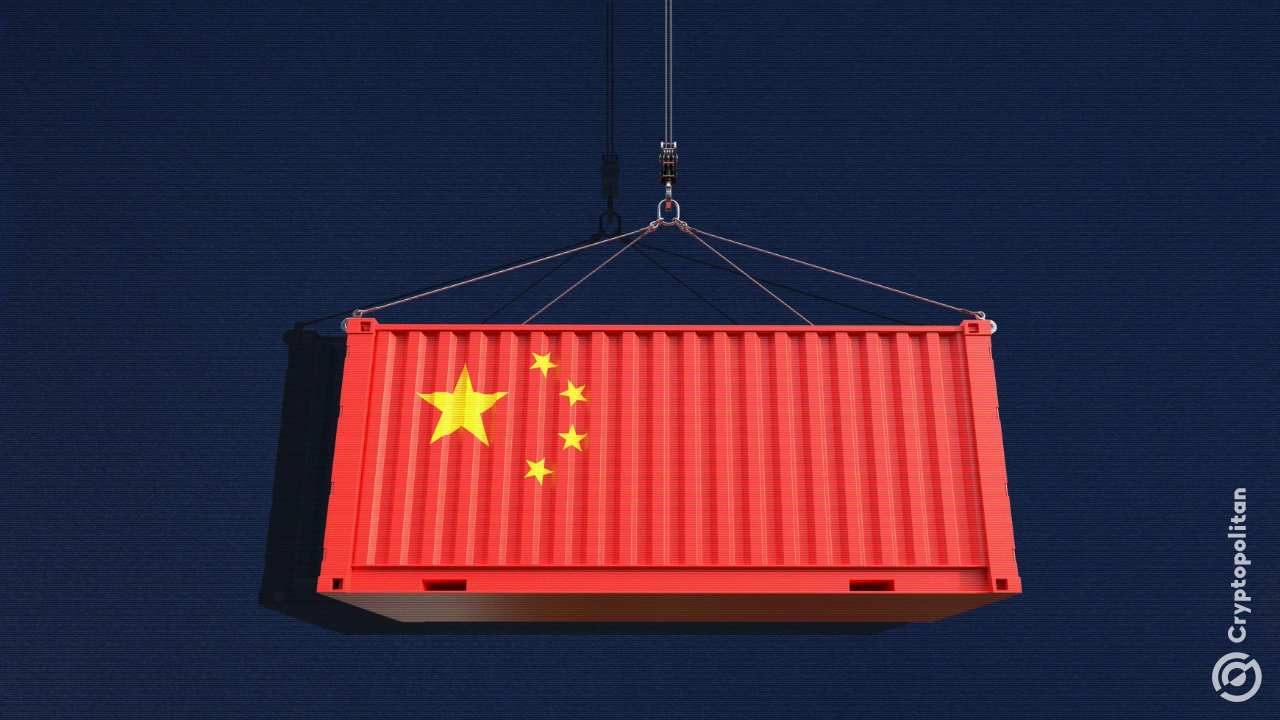In related news, the Group of Seven finance ministers agreed to present a united front and coordinate a short-term response to China’s export controls on rare earths. They also plan to diversify their supply chains, European Economic Commissioner Valdis Dombrovskis announced Thursday.
China’s economic growth slowed to its weakest pace in the final quarter, despite a surge in exports. The gap is expected to prompt the Communist Party to push for higher domestic spending at its key conference next week.
The slowdown stems from escalating US-China trade tensions, which have sharply reduced investment, industrial output, and retail sales, weighing on overall global sales growth.
Sources say the National Bureau of Statistics’ data, due Monday, October 20, will likely show GDP grew 4.7% in the third quarter year-on-year, down from 5.2% in the previous quarter.
Economists call for a shift towards promoting consumption to enhance China’s economy
China’s economy has struggled in the last quarter, sparking endless debates among economic analysts. They anticipate that a discussion may be held among party officials concerning this situation at the upcoming fourth plenum in Beijing.
This meeting will outline their adopted strategies for the country’s development between 2026 and 2030, as governments and investors call for a shift towards increasing domestic consumption.
Examples of analysts who weighed in on the topic of discussion include Michelle Lam and Wei Yao from Societe Generale SA. They shared a report highlighting that several policymakers believe stimulating consumption is crucial to counterbalance the risks associated with US President Donald Trump’s tariff policies and declining returns on investment in traditional industries.
The analysts believe embracing a consumption goal will demonstrate a stronger commitment to this policy. Meanwhile, after Trump was re-elected as president, high-ranking officials pledged to shift their focus toward promoting consumption by applying strategic approaches, such as increasing spending on education and job creation. Contrastingly, they have been too cautious in their moves and have not yet created a specific target.
In China, household consumption accounts for approximately 40% of the country’s GDP. This percentage is less than the global average of 56%, according to data from the World Bank. Additionally, it lags behind the nearly 60% observed in wealthier countries.
Regarding the situation, economists from Morgan Stanley, including Robin Xing, stated in a report last week that they anticipate the main focus for policies will be technological self-sufficiency, innovation, and national security. At the same time, there might be some support for gradual reforms to social welfare.
China undergoes nine consecutive quarters of deflation
Overall, China’s economy appears strong this year, growing near the government’s target of about 5%. This has resulted from the strong performance of industries such as high-tech manufacturing, with exports reaching new highs.
Still, beneath the surface, economic vulnerabilities are mounting. Declining prices and intense competition are eroding company profits, while consumer demand is waning. The housing market, on the other hand, remains weak, and investment is plummeting.
New data next week will likely confirm that China has experienced nine consecutive quarters of deflation, a streak of falling prices not seen since the market-based reforms began in the late 1970s.
Speaking on the sidelines of the International Monetary Fund meetings in Washington, Dombrovskis stated that China now dominates the global supply chains for rare earths, with 80-90% of them sourced from China.
“It was clear that G7 partners have shared concerns about those new extensive Chinese export controls, expanding both the scope of minerals covered, but also in terms of covering the value chain and having quite extensive extraterritorial provisions,” Dombrovskis said.
He noted that they agreed on one hand to coordinate this work and their engagements with Chinese counterparts to seek some short-term solutions. Still, he added that they needed to continue the work, which is not new, on diversifying and enhancing the resilience of our supply chains.
Get up to $30,050 in trading rewards when you join Bybit today











